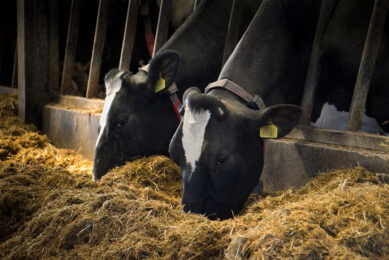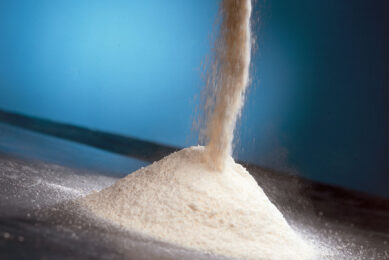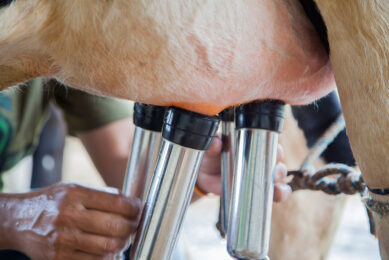High sulfur content in ethanol by-products
By-products from the ethanol industry make good animal feed. However, sulfur levels must be closely monitored says Grant Crawford, University of Minnesota Extension.
extremely high and is also quite variable. If animal diets are not monitored
closely, high sulfur levels in the diet coupled with high sulfur in the drinking
water can hurt animal performance and health.
When formulating rations,
the sulfur content of both the feed and water must be considered. To manage the
variability of sulfur levels in distillers grains, feedlot managers should
establish a safety margin when formulating rations. This allows for a margin of
error if the sulfur level of a truckload of distillers grain exceeds what the
ethanol plant reported. In addition, proper mixing and good feed bunk management
are needed to ensure the feed is uniformly mixed and delivered to
cattle.
In hot summer months, distillers grain levels may need to be
reduced, especially in areas with high sulfur levels in the water.
Unfortunately, high sulfur levels in distillers grains are something we must
deal with, and may at times limit its inclusion in cattle rations. Through feed
and water sampling, careful ration formulation and good management practices,
feedlot producers should be able to take advantage of this valuable
feedstuff.
For more details, check the University of Minnesota Extension beef
website.
Related folder:
Dossier AllAbout Bio Energy
Source: hutchinsonleader.com











